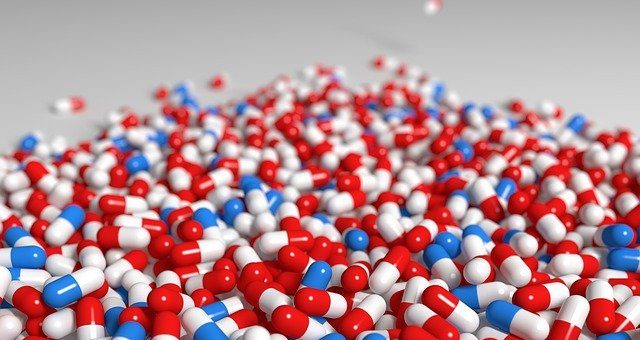The Finnish Society of Toxicology and the Estonian Society of Toxicology present:
30.03.2021, 14:00-16:15
Webinar: Pharmaceuticals in the environment: How to control medicinal residues and assess the potential risk?
The deadline for registration was 26.3.2021
The link to the online meeting will was sent to registered participants on 29.03.2021
Program
14:00-14:05 Opening words, Villem Aruoja, EST/Greta Waissi, FST
14:05-14:35 Pharmaceuticals in the Baltic Sea Region – emissions, consumption and environmental risks. Mailis Laht, Estonian Environmental Research Centre
14:35-15:05 Bioaccumulation and adverse effects of environmental drug residues in nontarget species. Tiina Sikanen, University of Helsinki
15:05-15:35 Degradation of pharmaceutical residues in sewage sludge compost – recent studies in Estonia. Egge Haiba, Tallinn University of Technology
15:35-16:00 Decreasing the emissions of pharmaceuticals in the Baltic Sea region. Noora Perkola, Finnish Environment Institute
16:00-16:15 Panel discussion, moderator: Pertti Pellinen, Finnish Medicines Agency Fimea
Organizing committee:
Greta Waissi (FST)
Marjo Pusenius (FST)
Selma Mahiout (FST)
Pertti Pellinen (FST)
Angela Ivask (EST)
Villem Aruoja (EST)
Abstracts
Pharmaceuticals in the Baltic Sea Region – emissions, consumption and environmental risks
Mailis Laht, Estonian Environmental Research Centre
The presentation will give an overview of resent studies about pharmaceuticals consumption, emissions to the environment and the environmental risks associated with their environmental levels in the Baltic Sea Region. Most of the data presented is from the project Clear Waters from Pharmaceuticals (CWPharma) funded by the EU’s Interreg Baltic Sea Region Programme1. Other data collection programs and results about pharmaceutical levels for Estonia are presented as well.
1 Reports of Work Package 2 – Comprehensive status of pharmaceuticals – improved knowledge on consumption, emissions, environmental levels and risks of pharmaceuticals Ek Henning, H. et al. https://www.cwpharma.fi/en-US/Publications
Bioaccumulation and adverse effects of environmental drug residues in nontarget species
Tiina Sikanen, University of Helsinki
Pharmaceutical residues are ubiquitous in the aquatic environment with remarkably high concentrations of especially antibiotics and analgesics. The global megatrends (population growth, ageing, pandemics) further increase the consumption of medicines and their human excretions to the sewage. In the environment, the residues can be taken up by the wildlife (non-target) species, many of which express orthologs of human drug targets and thus suffer from similar toxicologic response as man. Unless effectively eliminated, the residues can bioconcentrate and exceed the lethal dose. This presentation recapitulates the adverse effects assessment in nontarget species, with emphasis on non-regulatory in silico and in vitro approaches.
Degradation of pharmaceutical residues in sewage sludge and compost
Egge Haiba, Tallinn University of Technology
The presentation will give an overview of the recent studies on the degradation of pharmaceutical residues in sewage sludge compost and their concentrations in the sludge and soil in the Baltic Sea Region. Most of the data presented is from the projects carried out at Taltech Tartu College funded by the Environmental Investment Centre of Estonia. The rest of the data presented is from the project Clear Waters from Pharmaceuticals (CWPharma) funded by the EU Interreg Baltic Sea Region Programme.
Decreasing the emissions of pharmaceuticals in the Baltic Sea region
Noora Perkola, Finnish Environment Institute
The emissions of active pharmaceutical ingredients pose a threat to Baltic Sea region environment. CWPharma project, funded by EU’s Interreg Baltic Sea Region program, evaluated the efficiency of several emission reduction measures. Based on the evaluation, CWPharma made an action plan to reduce pharmaceutical emissions in the Baltic Sea region. To manage and decrease the emissions, a combination of different types of measures is needed, targeting different phases of the pharmaceutical lifecycle.
Program and abstracts in pdf




